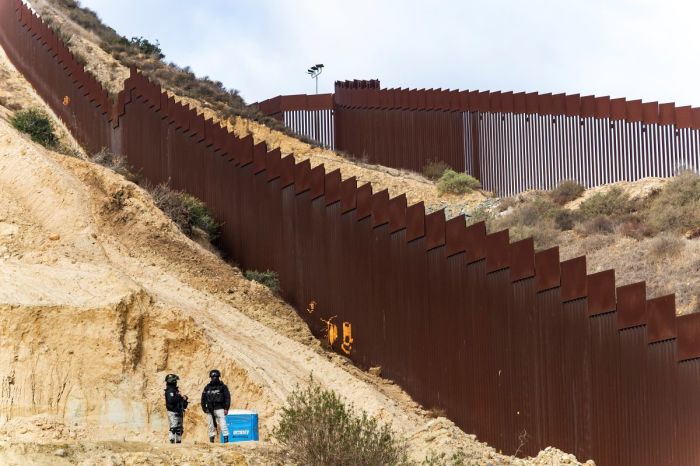Trump's week in review: Tariffs impact stocks; USDA freezes Maine funding; military fitness questioned

4. Trump imposes wide-ranging tariffs
On Wednesday, Trump signed an executive order titled "Regulating Imports With a Reciprocal Tariff to Rectify Trade Practices that Contribute to Large and Persistent Annual United States Goods Trade Deficits."
Decrying trade practices as unfair to the U.S., the executive order declares it the policy of the U.S. "to rebalance global trade flows by imposing an additional ad valorem duty on all imports from all trading partners."
While the tariffs will start at 10% on all countries at midnight Saturday, duties imposed on goods imported from a long list of countries will increase to higher rates effective at midnight Wednesday.
Tariff rates on goods from these countries, which primarily consist of developing countries as well as the European Union, will range from 11% on imports from Cameroon and the Democratic Republic of the Congo to 50% on imports from Laos. The list doesn't include the neighboring countries of Canada and Mexico.
The list includes a 34% tariff on China, which responded on Friday by issuing a 34% tariff of its own.
The White House has compiled a list of goods spanning 37 pages not subject to the "additional ad valorem duty." The executive order noted that Trump had already imposed tariffs on goods coming from Mexico and Canada in previous executive orders. Certain goods from Canada and Mexico have been subject to an additional 25% ad valorem rate of duty for one month now.
While the tariffs on goods from Canada and Mexico were initially scheduled to take effect in February, Trump issued subsequent executive orders pushing back the implementation of tariffs on goods from Canada and Mexico to March. Trump cited the additional tariffs on goods from Canada and Mexico as necessary to ensure cooperation from the two countries in helping the U.S. secure its respective borders with the countries and combat the flow of illegal drugs into the U.S.
The tariff announcements have impacted stock markets amid investor sell-offs and concerns about trade war escalation, as the Dow Jones Industrial Average and the S&P 500 have seen their sharpest declines since the COVID-19 pandemic in the last two days.
Ryan Foley is a reporter for The Christian Post. He can be reached at: ryan.foley@christianpost.com





























